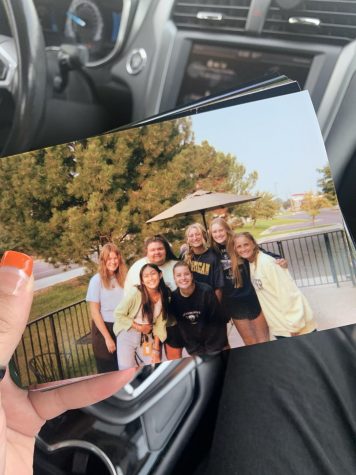Every Day, Everywhere
Photo by AMISOM Public Information
Earth is a filled with different cultures and languages, but the day-to-day life is oftentimes really similar.
Iran, a country portrayed as volatile, America-hating, and filled with oppressed people, resembles a trendy European city more than some war-torn country. In actuality, the capital city of Tehran is quite industrialized and more progressive than people may think.
The life of an average middle-class Iranian is quite similar to those in the states. People head off to school or work, hang out with friends, watch movies, and go to coffee shops and teahouses. Women wear stylish hijabs and you can spot foreign cars on the streets. In the CNN article, “Tehran’s teens: Iran isn’t what you think it is” a young Iranian woman said, “Life is very enjoyable for us. We are friends, we go out with each other, and we laugh, we have fun. And that’s it.”
When reading about countries in the Middle East, it is easy to forget the views of the country’s government are not always the views of the people. Iran’s government does have many restrictions, but in their homes, Iranians often go against them. Drinking alcohol is illegal in Iran yet many still do. Emmy Award-winning journalist Ramita Navai said, “There isn’t a corner of Tehran where you don’t find booze.” As well as drinking, Iranians smoke, wear makeup and have sex before marriage. Enrico Bossan, a photographer and author of Iranian Living Rooms, said: “It’s [homes] where they express the casual lifestyles that thrive despite the preferences of Iran’s government.”
When people think of living standards in Africa, they often think poor. While there are poorer areas in Africa, like any country in the world, it doesn’t make their lives any less fulfilling.
Allison Bridge, a history teacher at Bingham, spent two years working for the Peace Corps in a village called Fatoma, nearly 10 hours northeast of Mali’s capital. She said, since the village did not have running water or electricity, the day would start when the sun rose. People would have their bucket baths and breakfast, normally leftover dinner, and go on with the rest of their day. Little kids would go to elementary school, the women often start their chores like drawing water or sweeping the compound and the men would start working, whether it is at their shops, kiosks in the marketplace, or tending their livestock. The day would shut down around noon, when the weather got too hot, and start back up around 2 o’clock. At dinner, families would gather around their communal plate of rice and sauce, using their hands to eat, sticking to their section of the plate.
After dinner, though, was when visiting began. People would go to each other’s compounds, share three rounds of extremely sweet black tea, and talk about everything from their family and friends to soccer and Brazilian soap operas. Malians cherish their relationships with their family and neighbors. Visiting can take up to an hour and everyone knows everybody. Ms. Bridge found it interesting how in a country over 5,000 miles away, family relationships and friendships are the same as those in the U.S. Grandparents take care of their grandkids, parents still worry about their kids not calling enough, and teenagers are still teenagers. Ms. Bridge said, “They have a lot of the same expressions and the same attitudes. I actually heard the equivalent of ‘you’re not the boss of me’.”
Even though some people may live thousands of miles from us, what they care about is the same. The details of their lives may be different, but their love for their family and friends are the same. They enjoy sports and watching TV and using their phones. Everyone around the world has dreams, fears, hopes for their country. A different country does not mean a different type of person.

Britney Chen is a senior at Bingham. A long time Utahn and a brief native Chinese, she spends her time...






